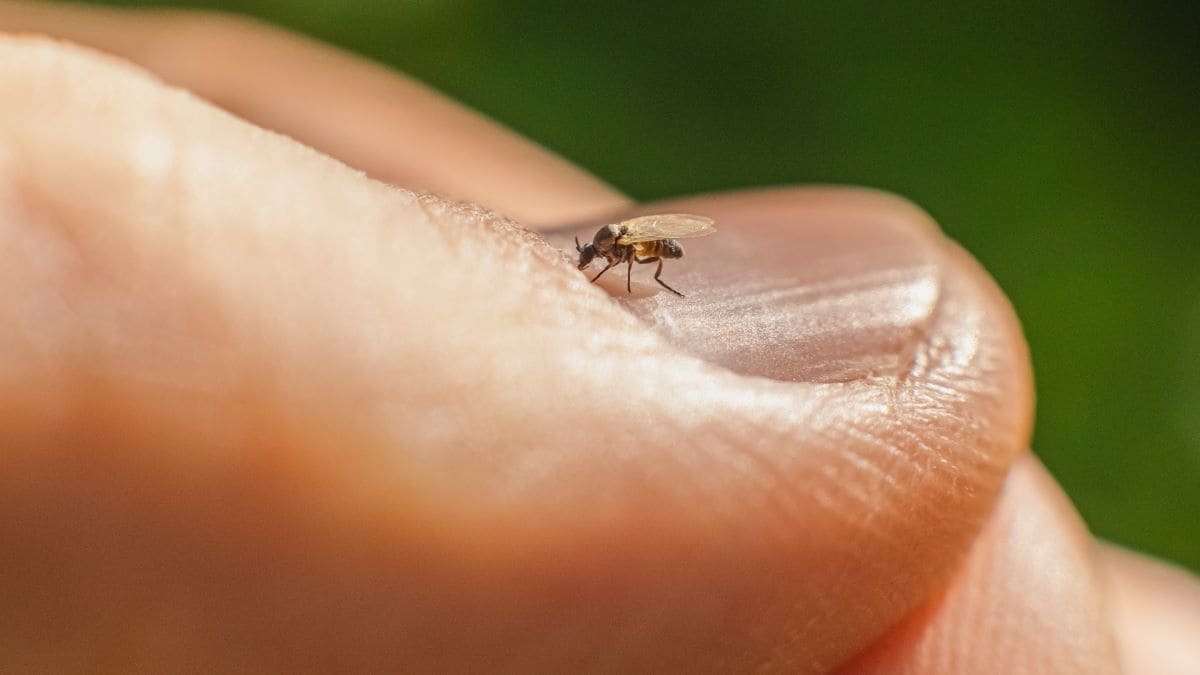Key points
- Midges are tiny files, usually less than an eighth of an inch (3mm) long.
- Biting midges can spread an emerging virus called Oropouche.

A tiny bite can pack a big punch
Biting midges are tiny flies, much smaller than a typical fly or mosquito. You've probably heard them called "no-see-ums." And although they're usually less than an eighth of an inch (3mm) long, they can spread an emerging virus called Oropouche.

Oropouche usually occurs in parts of South and Central America – especially in the Amazon Basin countries of Brazil, Colombia, and Peru. But in 2024, it appeared in Cuba, where it hadn't been seen before. And more than 90 cases have been found in travelers who returned to the United States over the summer, although there have been no cases of local transmission.
The biting midges that spread Oropouche can be found in much of the Western Hemisphere, including parts of the southeastern and midwestern United States. They're partial to woodlands and like to live in holes in trees, under decaying plants, and in wet, muddy, or mossy environments.
So it's possible that a biting midge could bite a person who got infected with Oropouche while traveling and spread it to other people, producing small local outbreaks in the U.S. mainland.
Some mosquitoes found in the United States and its Caribbean territories might spread Oropouche. As part of its response to this outbreak, CDC is studying what types of biting midges or mosquitoes might be able to spread the virus if they bite someone who's sick.
Oropouche normally causes a fever and body aches that go away on their own. But sometimes, it can cause more serious illness -- like meningitis or encephalitis. And recent cases in Brazil that involved people who got sick while pregnant have been associated with stillbirths or birth defects.
So, a tiny bite could pack a big punch. There are no vaccines to prevent or medicines to treat Oropouche, but you can protect yourself from Oropouche and other insect-borne diseases by using EPA-registered bug spray. You should also prevent bites while traveling if you'll be going to an area with Oropouche virus – and keep taking precautions for 3 weeks after your trip to prevent spreading the virus when you get back home. And if you're pregnant, talk to your healthcare provider about any travel plans and consider postponing non-essential trips to countries with a Level 2 Travel Health Notice.
